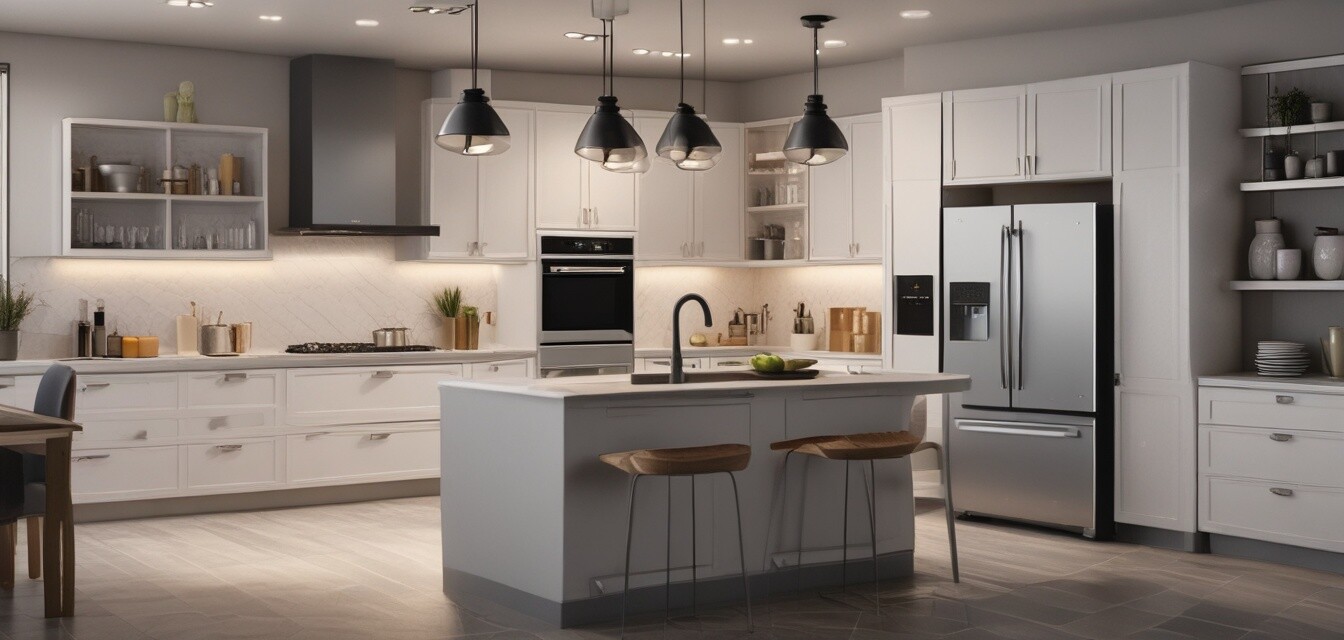
The Role of Smart Sensors in Kitchen Innovation
Key Takeaways
- Smart sensors enhance cooking accuracy and safety.
- They are integrated into various kitchen appliances.
- Real-time monitoring optimizes cooking processes.
- Connectivity allows users to control kitchen devices remotely.
- Smart sensors contribute to energy efficiency in the kitchen.
In recent years, smart technology has revolutionized various aspects of our lives, and the kitchen is no exception. Smart sensors are playing a pivotal role in enhancing cooking accuracy and safety, leading to a more efficient cooking environment. This article delves into the innovative applications of smart sensors and how they are transforming modern kitchens.
Understanding smart sensors
Smart sensors are devices that detect various conditions in the kitchen, such as temperature, humidity, and even the presence of food. They are integrated into appliances to provide valuable data that enhances performance and improves the user experience. By employing advanced technologies, these sensors bring a new level of precision to cooking.
How smart sensors work
Smart sensors function by collecting data from their environment and transmitting it to connected devices or apps. The following types of sensors are commonly used in kitchen appliances:
- Temperature sensors
- Humidity sensors
- Weight sensors
- Proximity sensors
Applications of smart sensors in kitchen appliances
The integration of smart sensors into kitchen appliances provides numerous benefits. Below are a few applications of these innovative sensors that enhance both accuracy and safety in cooking.
| Appliance Type | Smart Sensor Function | Benefits |
|---|---|---|
| Smart Ovens | Temperature & weight sensors | Ensures perfect cooking temperatures and even heat distribution. |
| Smart Refrigerators | Humidity sensors | Maintains optimal humidity levels to keep food fresh longer. |
| Cooking Thermometers | Temperature sensors | Provides real-time cooking temperature feedback to avoid overcooking. |
| Smart Scales | Weight sensors | Accurately measures ingredient quantities for precise recipes. |
| Touchless Faucets | Proximity sensors | Facilitates hands-free operation to avoid cross-contamination. |
Advantages of using smart sensors in the kitchen
Smart sensors offer a range of advantages that enhance the cooking experience:
Pros
- Enhanced cooking precision and consistency.
- Increased kitchen safety through real-time monitoring.
- Improved energy efficiency by optimizing appliance usage.
- Remote control and monitoring capabilities via mobile apps.
- Streamlined meal preparation and cooking processes.
Cons
- Initial setup may be complicated for some users.
- Dependence on technology and potential connectivity issues.
- Higher costs compared to traditional appliances.
Emerging trends in smart sensor technology
With every passing year, smart sensor technology is improving. Here are some emerging trends that might shape the future of kitchen appliances:
- Integration with artificial intelligence for personalized cooking recommendations.
- Increased adoption of IoT (Internet of Things) devices for seamless connectivity.
- Use of advanced machine learning algorithms to optimize cooking techniques.
- Focus on eco-friendly materials and energy-saving features.
Why the future of the smart kitchen looks bright
The future of smart kitchens is indeed promising, especially with the ongoing advancements in smart sensor technology. As kitchen technology continues to evolve, these sensors will play an increasingly significant role in enhancing convenience, safety, and efficiency. For tech-savvy homeowners and cooking enthusiasts, keeping up with these changes is vital for optimizing their culinary experiences.
For more information on related kitchen technology advancements, check out our article on Smart kitchen buying guides.
Conclusion
Smart sensors represent a significant leap forward in kitchen technology, enhancing every aspect of cooking from accuracy to safety. As these innovative devices become more integrated into our cooking routines, it is essential to stay informed about their capabilities and potential. Embracing the smart kitchen revolution not only leads to better cooking but also ensures a more enjoyable culinary experience.
To stay updated on kitchen innovations and advancements, visit our Kitchen technology news section.